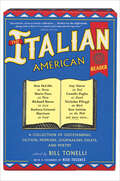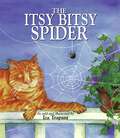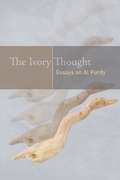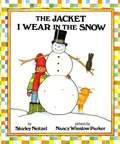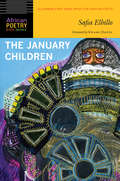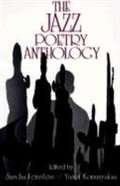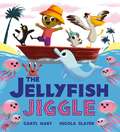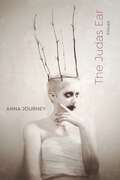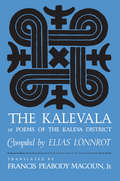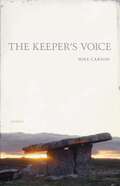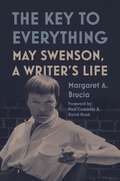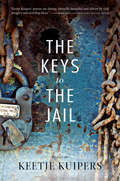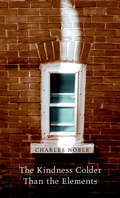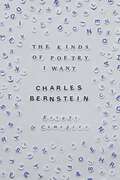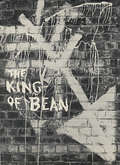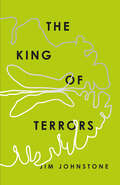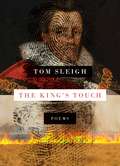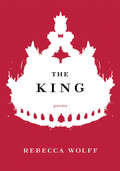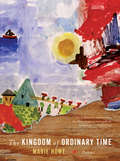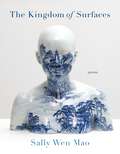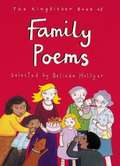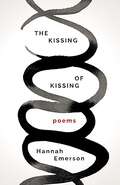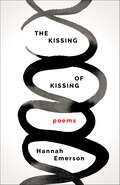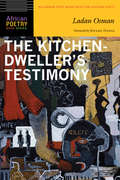- Table View
- List View
The Italian American Reader
by Bill TonelliThis anthology -- the first general-reader collection of writing by Italian American authors -- is part manifesto, part Sunday dinner. A gathering of voices old and new, some speak in the accents of another age, some completely contemporary and assured, and all together for the first time. To stand with all the other popular media images we represent, now, at last, one exists in written form, the literature of Italian American life.Inside, there are excerpts from novels, memoirs, short stories, essays, and poems -- by the living and the dead, the famous and the obscure. The excerpts are variously moving, funny, poignant, lusty, biting, reverent, witty, loving, angry, and wise, dealing in the most profound aspects of our lives no matter who we are: home, love, sex, family, food, work, God, death.Characters range from gangsters to grandmas, lovers to fighters, thinkers to doers, sinners to saints, with special appearances by Frank Sinatra and the Virgin Mary.
The Itsy Bitsy Spider (Iza Trapani's Extended Nursery Rhymes)
by Iza TrapaniThe spirited itsy bitsy spider has captured the hearts of generations of children in the much-loved nursery rhyme. Now she's back—on a new magical journey!Over 2.5 million copies in print! This all-new adventure for the itsy bitsy spider has exciting encounters with a fan, a mouse, a rocking chair, a cat, and a big maple tree. Finally, the itsy bitsy spider finds a lovely spot to spin a new silky web. Iza Trapani&’s vibrant watercolor illustrations paired with a playful rhythm makes this new take on an old favorite feel like an instant classic. A perfect read-aloud; children will enjoy time and again the delightful antics of the energetic itsy bitsy spider.
The Ivory Thought: Essays on Al Purdy (Reappraisals: Canadian Writers)
by Gerald Lynch Shoshannah Ganz Josephene T. M. KealeyIf one poet can be said to be the Canadian poet, that poet is Al Purdy (1918–2000). Numerous eminent scholars and writers have attested to this pre-eminent status. George Bowering described him as “the world’s most Canadian poet” (1970), while Sam Solecki titled his book-length study of Purdy The Last Canadian Poet (1999). In The Ivory Thought: Essays on Al Purdy, a group of seventeen scholars, critics, writers, and educators appraise and reappraise Purdy’s contribution to English literature. They explore Purdy’s continuing significance to contemporary writers; the life he dedicated to literature and the persona he crafted; the influences acting on his development as a poet; the ongoing scholarly projects of editing and publishing his writing; particular poems and individual books of poetry, fiction, and non-fiction; and the larger themes in his work, such as the Canadian North and the predominant importance of place. In addition, two contemporary poets pay tribute with original poems.
The Jacket I Wear In The Snow
by Shirley Neitzel Amy CohrRhyme follows rhyme as layer after layer of winter clothing ("bunchy and hot, wrinkled a lot, stiff in the knee, and too big for me!") is first put on and then taken off to the relief of the child bundled inside. The Jacket I Wear in the Snow especially fun for prereaders and new readers.
The January Children (African Poetry Book)
by Kwame Dawes Safia ElhilloIn her dedication Safia Elhillo writes, “The January Children are the generation born in Sudan under British occupation, where children were assigned birth years by height, all given the birth date January 1.” <P><P>What follows is a deeply personal collection of poems that describe the experience of navigating the postcolonial world as a stranger in one’s own land. <P><P>The January Children depicts displacement and longing while also questioning accepted truths about geography, history, nationhood, and home. The poems mythologize family histories until they break open, using them to explore aspects of Sudan’s history of colonial occupation, dictatorship, and diaspora. <P><P>Several of the poems speak to the late Egyptian singer Abdelhalim Hafez, who addressed many of his songs to the asmarani—an Arabic term of endearment for a brown-skinned or dark-skinned person. Elhillo explores Arabness and Africanness and the tensions generated by a hyphenated identity in those two worlds. No longer content to accept manmade borders, Elhillo navigates a new and reimagined world. <P><P>Maintaining a sense of wonder in multiple landscapes and mindscapes of perpetually shifting values, she leads the reader through a postcolonial narrative that is equally terrifying and tender, melancholy and defiant.
The Jazz Poetry Anthology
by Yusef Komunyakaa Sascha FeinsteinThis is a beautiful anthology of poems that will give you many new authors to look up for further reading.
The Jellyfish Jiggle
by Caryl HartGet ready to scuttle, swim, wiggle and jiggle in this delightful rhyming story which gets children reading and moving along!When we were at the beach today, a little crab came by."Come scuttle with me," said the crab. "Scuttling's fun, let's try!"Whirl and wiggle! Whirl and wiggle!Let's SCUTTLE and SNAP to the Jellyfish Jiggle!Learn to move like your seaside friends at the beach and under water! Dive with the penguin, rock the pelican's boat and wiggle, jiggle and giggle with the jellyfish! Everyone can join the fun in or out of the water!Features a main character with a prosthetic limb showing all the fun exercise moves.This fantastic water-themed story from Caryl Hart and Nicola Slater, the duo behind The Safari Stomp, is perfect for getting little ones excited about swimming.
The Judas Ear: Poems
by Anna JourneyAnna Journey’s The Judas Ear resurrects a host of vanished people and places, often through marvelous Ovidian metamorphoses that seem as natural in the gritty tableaux of Richmond, Virginia, as in the luminous shape-shifting vistas of folktale or myth. Journey’s music is lush and visceral, her humor warm and sly, and her sensibility metes out tenderness and grotesquerie in equal parts. Like the ear-shaped mushroom named for a biblical betrayer, the poems in The Judas Ear can shift suddenly from wit to pathos, from seductiveness to danger, with a generosity of vision that is at once wise and revelatory.
The Kalevala: Or, Poems of the Kaleva District
by Elias LönnrotThe national folk epic of Finland is here presented in an English translation that is both scholarly and eminently readable. To avoid the imprecision and metrical monotony of earlier verse translations, Francis Magoun has used prose, printed line for line as in the original so that repetitions, parallelisms, and variations are readily apparent. The lyrical passages and poetic images, the wry humor, the tall-tale extravagance, and the homely realism of the Kalevala come through with extraordinary effectiveness.
The Keeper's Voice: Poems (Southern Messenger Poets)
by Mike CarsonMeeting a local woman at a service project in Appalachia, the narrator of Mike Carson’s poem “Muse” hears from her “Those words, iron twang of loss,” that “cut soft ideas of beauty out.” Carson’s lean, spare collection The Keeper’s Voice unflinchingly engages those hard ideas of beauty, of goodness. Direct and often colloquial in their language and traditional in their forms—blank verse, quatrains, sonnets—the poems’ voices arise from a wide range of viewpoints and situations: from an altar boy thawing a frozen gate lock while early Mass goes on without him, to a returning Vietnam veteran who takes up bull riding; from a boy calling cows in the pre-dawn dark, to a narrator providing instructions for teaching crows to talk; from a new cop, a Christian who must shoot to kill in a ghetto bar, to a family discovering the ashes of a stillborn child among a dead sister’s belongings. One poem interweaves locker room slogans with phrases from the Requiem Mass for a friend who died playing football; another centers around a single shout from a wife to her husband threatened by an untethered bull. Refreshingly straightforward, yet suffused with weight, maturity, and passion, The Keeper’s Voice projects a wise and uncompromising vision.
The Key to Everything: May Swenson, A Writer's Life
by Margaret A. BruciaAn intimate portrait of the twentieth-century American poetMay Swenson (1913–1989) was one of the most important and original poets of the twentieth century. The Key to Everything is a biography of this experimental American modernist that draws directly from her unpublished diaries and her letters to friends, family, and colleagues, most notably Elizabeth Bishop. In 1952, Swenson wrote in her diary, &“I want to confirm my life in a narrative—my Lesbianism, the hereditary background of my parents, grandparents, origins in the &‘old country.&’&” Taking up Swenson&’s uncompleted autobiographical plan, Margaret Brucia tells Swenson&’s story as much as possible through her own words.While chronicling the whole of Swenson&’s life, this book focuses on the period from 1936 to 1959, when she came of age artistically and personally in New York City. Against the backdrop of the Great Depression, the Federal Writers&’ Project, Greenwich Village, and the emergence of gay culture, Swenson&’s diaries lay bare her aspirations, fears, joys, and disappointments. Readers see the poet and person emerge, inextricably entwined, as Swenson describes her struggles with poverty, anonymity, and predatory men; her romantic relationships; and the people she met, the books she read, and the work she produced.The most detailed and intimate biography of Swenson to date, The Key to Everything is a unique portrait of a poet who resisted labels throughout her life.
The Keys to the Jail (American Poets Continuum)
by Keetje KuipersThe Keys to the Jail asks the question of who is to blame for all we’ve lost, calling us to reexamine the harsh words of failed love, the aging of a once-beautiful body, even our own voracious desires. Keetje Kuipers is a poet of daring leaps and unflinching observations, whose richly textured lyrics travel from Montana’s great wildernesses to the ocean-fogged streets of San Francisco as they search out the heart that’s lost its way.Dolores ParkIn the flattening California dusk,women gather under palms with their bagsof bottles and cans. The grass is featheredwith the trash of the day, paper napkinsblowing across the legs of those who stilldrown on a patchwork of blankets. Shirtlessin the phosphorescent gloom of streetlamps,they lie suspended. This is my one goodlife-watching the exchange of embraces,counting the faces assembled outsidethe ice-cream shop, sweet tinge of urine bythe bridge above the tracks, broken bike lockof the gay couple’s hands, desperate clappingof dark pigeons-who will take it from me?A former Wallace Stegner Fellow in Poetry, Keetje Kuipers's debut collection, Beautiful in the Mouth, won the A. Poulin, Jr. Poetry Prize. She has been the Margery Davis Boyden Wilderness Writing Resident, and is currently an assistant professor at Auburn University.
The Kindness Colder Than the Elements
by Charles NobleWith wit and cunning, Noble's poems insinuate themselves into the mediations of "we use language" / "language uses us," into the objectification of "mind," into the struggles and cracking of systems. Cuing on Hegel's epochal revitalization of the syllogism, they begin with sentences-cum-arguments that issue from an everyman's intentions and insights, playing into and baiting the "sociality of reason." In the cut-up sentences then come the restless, accelerated themes—themes that exist only in their variations, ghosting into one another like the dusk and the dawn in a winging, distended now.
The Kinds of Poetry I Want: Essays & Comedies
by Charles BernsteinA celebration of the radical poetics of invention from Charles Bernstein. For more than four decades, Charles Bernstein has been at the forefront of experimental poetry, ever reaching for a radical poetics that defies schools, periods, and cultural institutions. The Kinds of Poetry I Want is a celebration of invention and includes not only poetry but also essays on aesthetics and literary studies, interviews with other poets, autobiographical sketches, and more. At once a dialogic novel, long poem, and grand opera, The Kinds of Poetry I Want arrives amid renewed attacks on humanistic expression. In his polemical, humorous style, Bernstein faces these challenges head-on and affirms the enduring vitality and attraction of poetry, poetics, and literary criticism.
The King of Bean
by Brent MacKayA sure-tongued linguistic menagerie. Brent’s poems also appear in News and Weather: Seven Canadian Poets edited by August Kleinzahler - This anthology cuts into the Canadian poetry scene on a fresh, oblique angle. Included are Robert Bringhurst, Margaret Avison, A.F. Moritz, Guy Birchard, Terry Humby, Alexander Hutchinson and Brent MacKay.
The King of Terrors
by Jim JohnstoneCBC BOOKS CANADIAN POETRY COLLECTIONS TO WATCH FOR IN FALL 2023What can we remove from ourselves and still be ourselves? Written after a brain tumour diagnosis early in the pandemic, The King of Terrors is a meditation on living with illness and the forces required to heal. These forces are not always what we expect – they may not even be medical. Jim Johnstone implies that language, relationships, and our immersion in the natural world can free us from the spectre of impending collapse. Haunted by the decimation of the North American landscape and the anxiety of living in a polarized society, Johnstone’s poems are bodily reflections that ask how we can reframe our past to make sense of the present. The King of Terrors oscillates between the personal and the public, the clinical and the spiritual, so we’re never quite sure what we are seeing, no matter how familiar."There is a moving, fierce intensity to The King of Terrors. Jim Johnstone knowingly reminds us that betrayals of the body are also betrayals of language, ‘each bloody / mouthful a sentence fragment.’ These are lines of admission, ambition, and harrowing truth, and Johnstone – despite a future only as certain ‘as the body // it inhabits’ – offers a form of redemption, for the fortitude of the sick, for poetry itself." – Randall Mann, author of Deal: New and Selected Poems"The King of Terrors is a luminous meditation on the otherworld of illness and treatment, contemplating the mysteries of death and the frontiers of mind and body with sharp clarity and radical vulnerability. These mesmerizing, urgent poems admit us not only to waiting rooms and brain scans, but also to the intimate fears that accompany the estranging experience of being unwell, or, as the poet says, living 'between / age and agency.' Haunting, stark, and lyrical, The King of Terrors is charged, as all the best poetry is, with the shock of the mortal." – Sarah Holland-Batt, author of The Jaguar
The King's Touch: Poems
by Tom SleighA profound encounter with the hyperreality of our time of global upheaval, violence, and pandemic.Tom Sleigh’s poems are skeptical of the inevitability of our fate, but in this brilliant new collection, they are charged with a powerful sense of premonition, as if the future is unfolding before us, demanding something greater than the self. Justice is a prevailing force, even while the poems are fully cognizant of the refugee crisis, war, famine, and the brutal reality of a crowded hospital morgue. The King’s Touch collides the world of fact and the world of mystery with a resolutely secular register. The title poem refers to the once-held belief that the king, as a divine representative, is imbued with the power of healing touch. Sleigh turns this encounter between illness and human contact toward his own chronic blood disease and the ongoing COVID-19 pandemic and its mounting death tolls. One poem asks, “isn’t it true that no matter how long you / wear them, masks don’t grieve, only faces do?”In this essential new work, Sleigh shows how the language of poetry itself can revive and recuperate a sense of a future under the conditions of violence, social unrest, and global anxiety about the fate of the planet.
The King: Poems
by Rebecca Wolff"Wolff keeps company with Sylvia Plath, Sharon Olds, and Beth Ann Fennelly."--Publishers Weekly, starred review A bold, lyrical invention by an award-winning poet whose "gift for the gorgeous" won praise from Robert Pinsky. The King is a groundbreaking collection following a Self--a mother, lover, wife, thinker--in her fractured approach to the absolutes of pregnancy, postpartum depression, childrearing, belief, love, and epistemology. Here is a potent exploration of one woman's coming together with the Other--her hard-won attachment to "the King." from "Deeply Psychological" And then I surfaced a whole matrix or rubric magical thinking other kinds of thinking but in layers, you understand, with supremacy a honeycomb.
The Kingdom of Ordinary Time: Poems
by Marie HoweFinalist for the Los Angeles Times Book Prize: "Thought-provoking, poignant, brutal, amusing, and always beautiful."--Elizabeth Berg Hurrying through errands, attending a dying mother, helping her own child down the playground slide, the speaker in these poems wonders: what is the difference between the self and the soul? The secular and the sacred? Where is the kingdom of heaven? And how does one live in Ordinary Time--during those apparently unmiraculous periods of everyday trouble and joy?
The Kingdom of Surfaces: Poems
by Sally Wen MaoA virtuosic new poetry collection from Sally Wen Mao, “a consistently inspiring and exciting voice” (Morgan Parker)In The Kingdom of Surfaces, award-winning poet Sally Wen Mao examines art and history—especially the provenance of objects such as porcelain, silk, and pearls—to frame an important conversation on beauty, empire, commodification, and violence. In lyric poems and wide-ranging sequences, Mao interrogates gendered expressions such as the contemporary “leftover women,” which denotes unmarried women, and the historical “castle-toppler,” a term used to describe a concubine whose beauty ruins an emperor and his empire. These poems also explore the permeability of object and subject through the history of Chinese women in America, labor practices around the silk loom, and the ongoing violence against Asian people during the COVID-19 pandemic.At its heart, The Kingdom of Surfaces imagines the poet wandering into a Western fantasy, which covets, imitates, and appropriates Chinese aesthetics via Chinamania and the nineteenth-century Aesthetic movement, while perpetuating state violence upon actual lives. The title poem is a speculative recasting of “Through the Looking-Glass,” set in a surreal topsy-turvy version of the China-themed 2015 Metropolitan Museum of Art Gala. The Kingdom of Surfaces is a brilliantly conceived call for those who recognize the horrors of American exceptionalism to topple the empire that values capital over lives and power over liberation.
The Kingfisher Book of Family Poems
by Belinda HollyerThe 159 poems in this collection explore just about every family situation. There are poems about celebrations and about remembering sad times. There are poems about a grandmother's tired old legs, about a new baby sister, and about the awfulness of your mother wiping your face in front of your friends. There are poems about being the youngest in the family, about being an only child, and about being adopted. There's a poem about having to eat muesli for breakfast, another about what your pet hamster does all day, and even one about watching your dad cut his toenails.
The Kissing of Kissing (Multiverse)
by Hannah EmersonIn this remarkable debut, which marks the beginning of Multiverse—a literary series written and curated by the neurodivergent—Hannah Emerson’s poems keep, dream, bring, please, grownd, sing, kiss, and listen. They move with and within the beautiful nothing (“of buzzing light”) from which, as she elaborates, everything jumps. <P><P> In language that is both bracingly new and embracingly intimate, Emerson invites us to “dive down to the beautiful muck that helps you get that the world was made from the garbage at the bottom of the universe that was boiling over with joy that wanted to become you you you yes yes yes.” These poems are encounters—animal, vegetal, elemental—that form the markings of an irresistible future. And The Kissing of Kissing makes joyously clear how this future, which can sometimes seem light-years away, is actually as close, as near, as each immersive now. It finds breath in the woods and the words and the worlds we share, together “becoming burst becoming / the waking dream.” <P><P> With this book, Emerson, a nonspeaking autistic poet, generously invites you, the reader, to meet yourself anew, again, “to bring your beautiful nothing” into the light.
The Kissing of Kissing: Poems
by Hannah EmersonIn this remarkable debut, which marks the beginning of Multiverse—a literary series written and curated by the neurodivergent¬—Hannah Emerson’s poems keep, dream, bring, please, grownd, sing, kiss, and listen. They move with and within the beautiful nothing (“of buzzing light”) from which, as she elaborates, everything jumps. In language that is both bracingly new and embracingly intimate, Emerson invites us to “dive down to the beautiful muck that helps you get that the world was made from the garbage at the bottom of the universe that was boiling over with joy that wanted to become you you you yes yes yes.” These poems are encounters—animal, vegetal, elemental—that form the markings of an irresistible future. And The Kissing of Kissing makes joyously clear how this future, which can sometimes seem light-years away, is actually as close, as near, as each immersive now. It finds breath in the woods and the words and the worlds we share, together “becoming burst becoming / the waking dream.” With this book, Emerson, a nonspeaking autistic poet, generously invites you, the reader, to meet yourself anew, again, “to bring your beautiful nothing” into the light.
The Kitchen-Dweller's Testimony (African Poetry Book)
by Kwame Dawes Ladan OsmanWinner of the Sillerman First Book Prize for African Poets, The Kitchen-Dweller’s Testimony asks: Whose testimony is valid? Whose testimony is worth recording? Osman’s speakers, who are almost always women, assert and reassert in an attempt to establish authority, often through persistent questioning. Specters of race, displacement, and colonialism are often present in her work, providing momentum for speakers to reach beyond their primary, apparent dimensions and better communicate. The Kitchen-Dweller’s Testimony is about love and longing, divorce, distilled desire, and all the ways we injure ourselves and one another.
